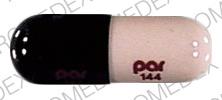Hydra-Zide Interactions
There are 637 drugs known to interact with Hydra-Zide (hydralazine / hydrochlorothiazide), along with 17 disease interactions, and 2 alcohol/food interactions. Of the total drug interactions, 15 are major, 590 are moderate, and 32 are minor.
- View all 637 medications that may interact with Hydra-Zide
- View Hydra-Zide alcohol/food interactions (2)
- View Hydra-Zide disease interactions (17)
Most frequently checked interactions
View interaction reports for Hydra-Zide (hydralazine / hydrochlorothiazide) and the medicines listed below.
- amlodipine
- Aspir 81 (aspirin)
- atorvastatin
- clonazepam
- clonidine
- Crestor (rosuvastatin)
- diclofenac
- Digox (digoxin)
- diltiazem
- Eliquis (apixaban)
- famotidine
- Fish Oil (omega-3 polyunsaturated fatty acids)
- fosinopril
- isosorbide mononitrate
- labetalol
- Lasix (furosemide)
- Lipitor (atorvastatin)
- lisinopril
- lorazepam
- meloxicam
- metformin
- metoclopramide
- montelukast
- multivitamin
- Norvasc (amlodipine)
- omeprazole
- pantoprazole
- potassium chloride
- ramipril
- Zofran (ondansetron)
Hydra-Zide alcohol/food interactions
There are 2 alcohol/food interactions with Hydra-Zide (hydralazine / hydrochlorothiazide).
Hydra-Zide disease interactions
There are 17 disease interactions with Hydra-Zide (hydralazine / hydrochlorothiazide) which include:
- bone marrow suppression
- coronary artery disease
- lupus erythematosus
- valvular heart disease
- anuria
- electrolyte losses
- liver disease
- lupus erythematosus
- renal function disorders
- cerebral vasculopathy
- renal dysfunction
- asthma
- diabetes
- hyperlipidemia
- hyperparathyroidism
- hyperuricemia
- thyroid function tests
More about Hydra-Zide (hydralazine / hydrochlorothiazide)
- Check interactions
- Compare alternatives
- Drug images
- Side effects
- Dosage information
- During pregnancy
- Drug class: miscellaneous antihypertensive combinations
Related treatment guides
Drug Interaction Classification
| Highly clinically significant. Avoid combinations; the risk of the interaction outweighs the benefit. | |
| Moderately clinically significant. Usually avoid combinations; use it only under special circumstances. | |
| Minimally clinically significant. Minimize risk; assess risk and consider an alternative drug, take steps to circumvent the interaction risk and/or institute a monitoring plan. | |
| No interaction information available. |
See also:
Farxiga
Farxiga (dapagliflozin) is an oral prescription medication that may be given to certain adults with ...
Lasix
Lasix is a loop diuretic used to treat fluid retention from heart, liver, or kidney conditions, and ...
Botox
Botox is used for cosmetic purposes and to treat overactive bladder symptoms, urinary incontinence ...
Valsartan
Valsartan is an angiotensin II receptor blocker (ARB) that may be used to treat high blood pressure ...
Triamcinolone
Triamcinolone is used to treat allergies, skin conditions, ulcerative colitis, and arthritis. Learn ...
Warfarin
Warfarin is an anticoagulant used to prevent heart attacks, strokes, and blood clots. Learn about ...
Diltiazem
Diltiazem is used to treat high blood pressure, angina and certain heart rhythm disorders. Included ...
Atenolol
Atenolol is used to treat angina (chest pain) and hypertension (high blood pressure). Learn about ...
Hydrochlorothiazide
HCTZ (hydrochlorothiazide) used to treat high blood pressure (hypertension) and edema. Includes ...
Further information
Always consult your healthcare provider to ensure the information displayed on this page applies to your personal circumstances.


